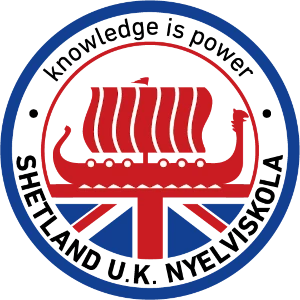What are the advantages of studying a language abroad in the summer?
A completely different way to develop language skills. You can immerse yourself in your mother tongue.
How are children motivated to learn in the summer?
The biggest motivating force is that, in addition to learning and as a complement, you can also get to know the mother country of the foreign language you are learning - customs, people, strange sports, beautiful landscapes, etc. It is a combination of learning and holiday, and you will gain knowledge without even noticing it.
To what extent will this be serious learning?
Every morning the children study in international groups. It is understood that the lessons are conducted in the target language only, the teachers are qualified language teachers and their methods are different from those used in the home country. In the afternoon and at the weekends, they take part in the programmes together with students from other countries, so that the language of the country is the only tool that connects them.
Why should I choose this language school, what are the advantages (compared to others), e.g. cheaper, more familiar, safer, more routine, many good references, more flexible...?
In 25 years of language travel, we have got to know our partner schools better. We can guarantee the safety of children travelling through Shetland Language School up to 100%. We personally know all the language teachers employed by our partners, most of the host families have been hosting our students for decades, quality and safety is guaranteed.
Do you need, and if so, what level of prior language knowledge?
Recommended. There are also courses for complete beginners, but it is more useful to have some previous knowledge.
At what age should I send my child abroad?
From the age of 14. You can go earlier, but only if you are an able, independent young person with an intermediate level of proficiency in the language.
When do the courses start and how long do they last?
Junior courses run for 2, 3 or 4 weeks in the summer, after the end of the school year and until the end of August.
Students over 18 can go abroad any week of the year
How long course is it worth choosing?
In our experience, for at least 2 weeks.
How much does a language course abroad cost?
Depending on the location, the partner school abroad, the type of course, the length of the study trip and the period, from 450.000 HUF upwards.
Is there a sibling discount?
Yes.
Is there a discount for referring a friend?
Not typical, but possible in some cases.
Does the price include airfare, accommodation, meals, course and textbook, sightseeing-museum excursions, local transport?
The quote is usually sent at an earlier stage in the organisation process, i.e. when the tickets are not yet available. Therefore, the so-called basic quotation includes everything asked for except the cost of the trip.
Which airline do you fly?
Different airlines to different destinations, but Wizzair, Ryanair, Airmalta, now owned by Lufthansa, Airberlin are the most common.
Is there a way to get the flight ticket individually or even travel individually?
There are ways to do both.
What kind of accommodation is there?
Most students stay with local host families, but any type of accommodation can be arranged on request: hotel, apartment, dormitory, etc.
What is the catering like, how many meals a day are provided, and how many of those are hot meals?
For most partner schools, host families provide three meals a day, with one hot meal in the evening.
Are vegetarian/gluten-free etc. meals available?
Yes, as a school pupil, for a different special dietary supplement. Similarly, it is possible to find a suitable family for travellers with diabetes or other dietary requirements.
Is there a way to get friends in the same place?
Yes, it is possible for two Hungarian children to request to be placed with the same host family during the organisation process.
Will there be evening activities?
Yes.
How far is the accommodation from the school?
Most of our locations are either within walking distance or accessible by public transport. You never have to change anywhere.
How will my child get around town?
The price quoted includes the local season ticket for junior students.
How many lessons a day are there, with what teachers, students and topics?
There are usually 3 or 4 lessons a day, with lessons lasting 40, 45 or 60 minutes, depending on the partner. Internationality is ensured by the fact that all our partner schools are in contact with 25-60 countries, some of which are EU Member States, others from Asia, Africa and America. All of them use the CLT method, which means that the emphasis is on spoken and written communication (CLT = Communicative Language Teaching).
Will the Hungarian students be mixed with other nationalities or will they be among themselves?
Yes, mixed groups are always formed to minimise communication between speakers of the same mother tongue.
Are the groups divided by age or level?
The partner schools try to apply both principles, and usually succeed: the groups are definitely structured according to levels. Survey results show that this almost always provides for immediate age-group placement. e.g. it is very rare to find a 13-year-old who can do the upper level.
Will there be an exam, will you receive a certificate of attendance?
On Friday each week, we have a progress "exam" in each of our partner schools. At the end of the course, all students receive a certificate.
As a parent, what feedback will I get on my child's language level and development, and will I get suggestions on the further direction of his/her development?
These are precisely included in the very detailed certificates, i.e. not only the progress made during the course, but also the precise definition of the CEFR level and advice on how to improve.
How does a day go, how much free time is there, will it be structured, how much and how?
A typical day goes like this:
Breakfast with the host family
Education at school in the morning
Lunch (packed by the host as a snack)
The programme is usually organised between 13 and 16.30 and children and parents are informed about it before the trip. These programmes include cultural, sports, craft and nature activities. After the organised leisure programme, there is free time from about 16.30 to 18.00.
At 18.00 the children go home to their families to eat a hot dinner.
After dinner, there is an organised evening programme. Excursions organised at weekends.
What informal activities are organised?
The compulsory programmes are very important to ensure that children are not left to wander unsupervised in the afternoon in a foreign city they may not know. Informal activities are organised with the host families, if there is a possibility and a demand for them. Activities organised individually with new friends made at the language school during free time are also an informal activity.
What do I need to organise?
Provide individual medicines, possibly to meet individual needs.
What documents do I need?
Passport or identity card
Will there be insurance and what kind?
Taking out insurance is an individual decision. You can take out travel insurance with us, covering both baggage and medical care. All parents will be asked about this during the organisation process, and it is possible to take it out elsewhere.
Will there be permanent adult supervision?
Yes, if the child travels with a the group (e.g. not individually), adult supervision is provided.
How is public safety in the destination country?
We only travel to the safest destinations possible, but these days that's no 100% guarantee.
What if my child gets lost, gets mugged, or has an accident?
If they get lost, they can either phone the Hungarian group leader, the host family or the emergency number provided by the partner school. If they are robbed or lose something, it will be reported to the local police according to the usual protocol. A record will be kept so that action can be taken when they return home. In the event of an accident or illness, the student will be referred to the local outpatient health centre or hospital if necessary.
Who can they turn to if they are in trouble?
The Hungarian adult in charge of the group is the main contact, but the host family and the people in charge of the partner school are always there to help.
How will I communicate with my child, how much information will I get about what happened during and after the stay?
Communication is individual, i.e. it is mainly between parents and child, using their own mobile phones. Parents will also be given the telephone and other contact details of the accompanying Hungarian group leader, the host family and the school outside. After returning home, parents can evaluate the trip with the Hungarian teacher leading the group at an individually agreed time and on request.
What to pack, what programmes and weather to prepare for?
Depending on the destination country, we always hold a pre-trip familiarisation afternoon where we go through the recommended clothing and other packing requirements in detail.
Are there any possibilities to do laundry?
Yes or no depending on the partner institutions. Some sites have laundry services for children provided by the hosts, others provide laundry facilities, but there are also sites where public laundry services could be used.
Do you need to bring a sleeping bag, swimsuit, ceremonial dress, guidebook, dictionary?
No sleeping bag, swimsuits are always advised, no guidebooks or dictionaries are necessary. Festive attire is not required, although a disco-type program may be possible.
How much pocket money should be given?
Varies by destination country. Our prices are package prices, which means that everything you need is included. Spending money is only given according to individual needs.
What are the prices like?
England is strikingly expensive, and so is Ireland. Germany, Italy, Spain and Malta are reasonable.




